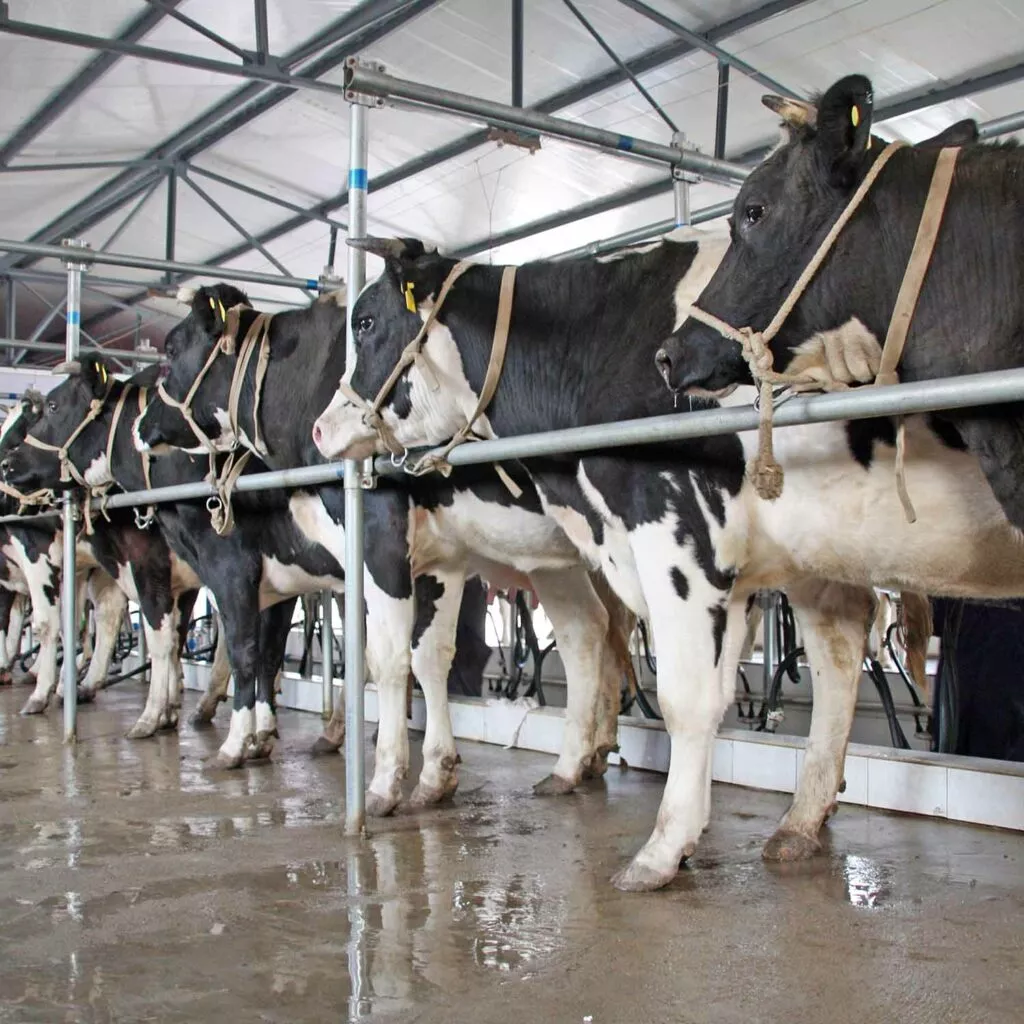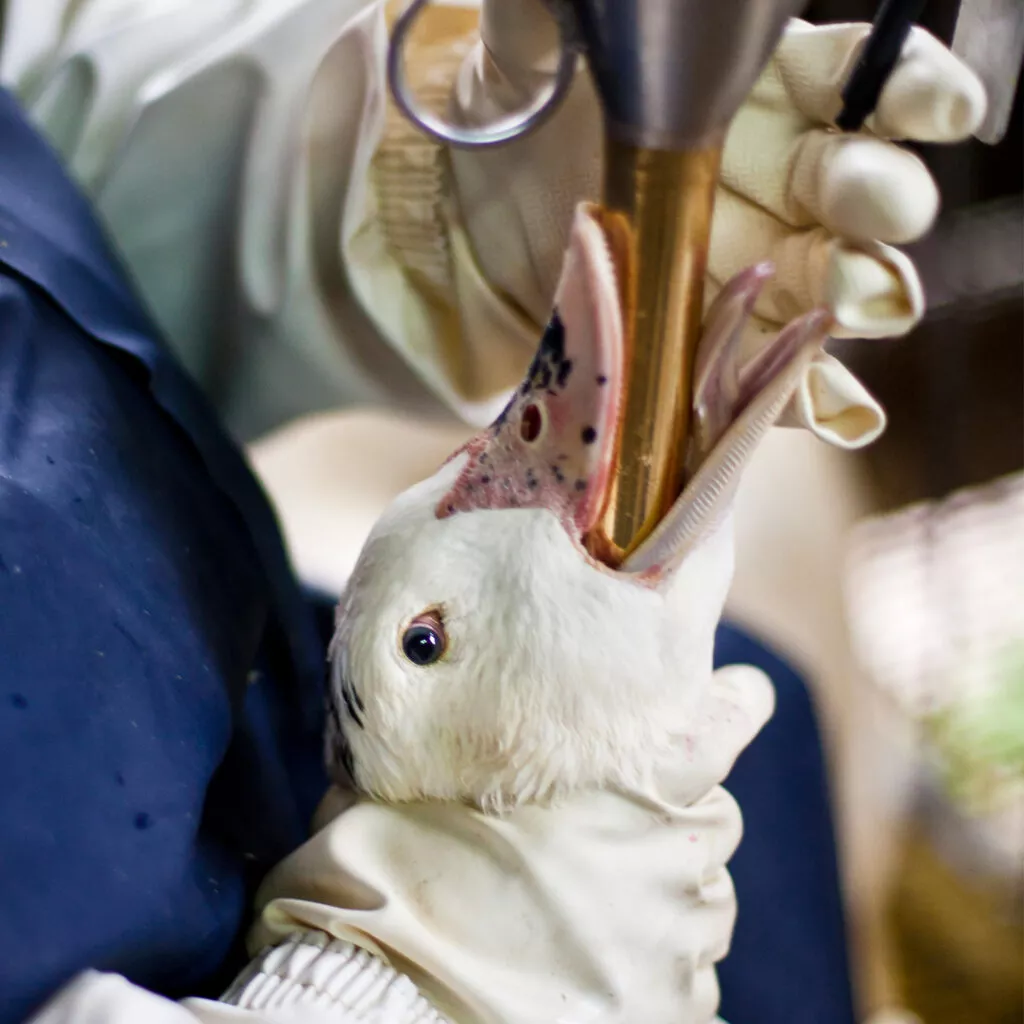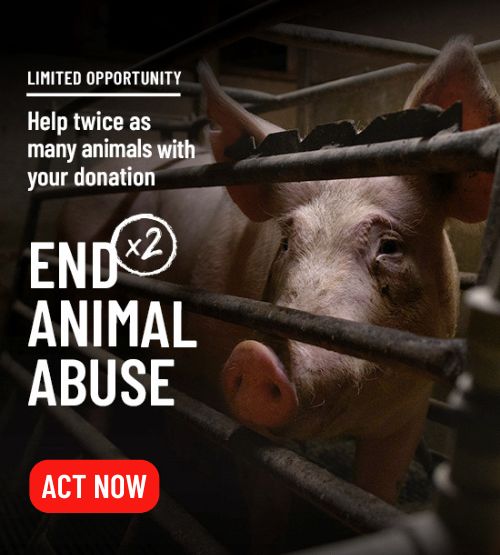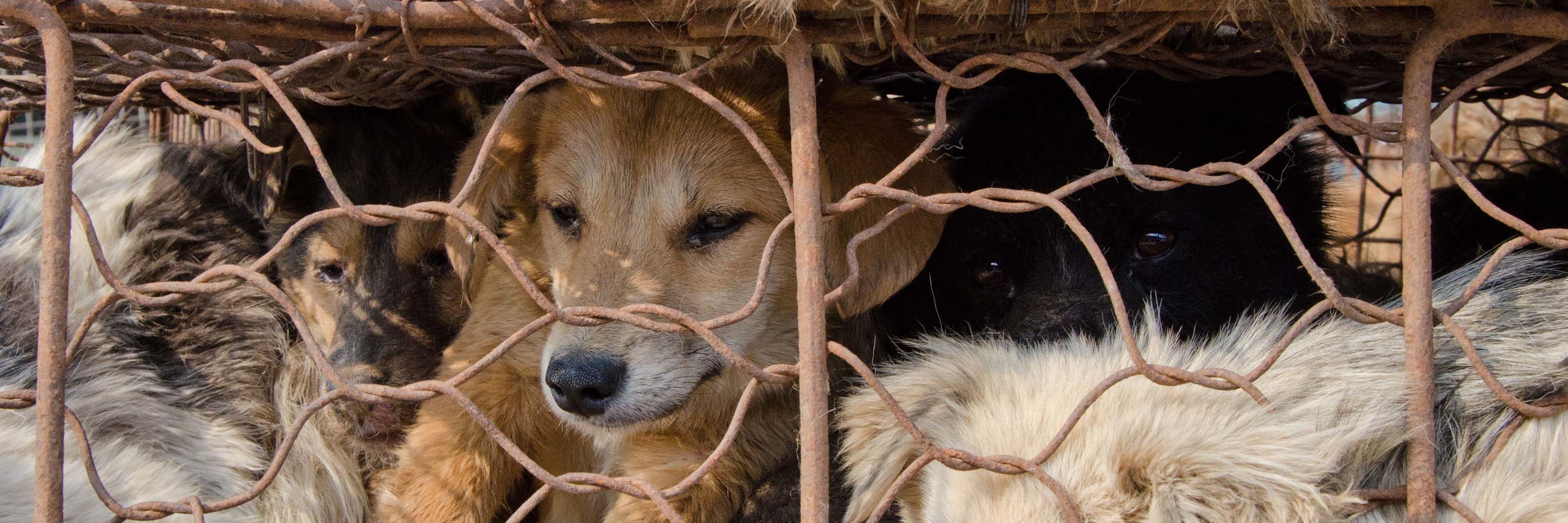
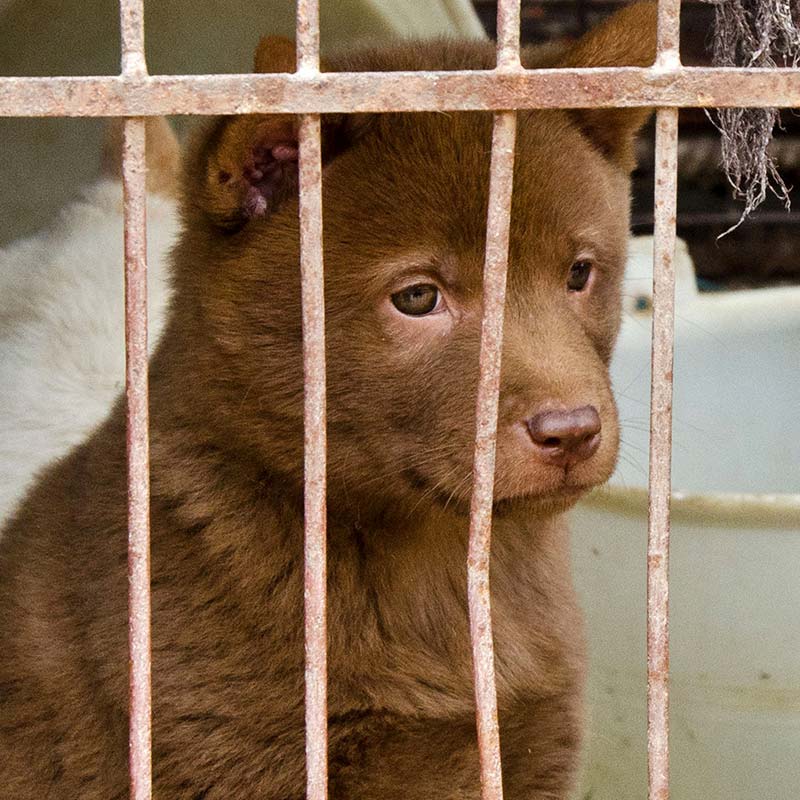
Undercover Investigations Expose Cruelty: China’s Cat and Dog Meat Trade
The work of Animal Equality in China began in 2012 when the investigative team made contact with local activists to shed light on the industry and trade of cat and dog meat and fur.
China, South Korea, Indonesia, and Vietnam are just some of the countries that still allow the trade and consumption of cat and dog meat.
Although most people in China have declared that they do not eat the meat of these animals, it’s estimated that more than 10 million dogs and about 4 million cats are killed for human consumption every year.
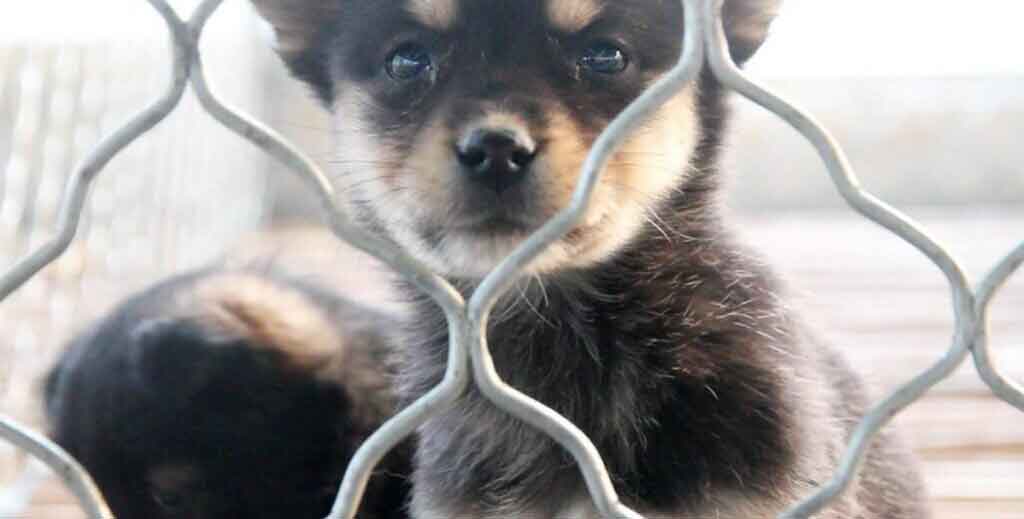
In some regions, you can easily find it for sale at street markets, but also in restaurants. For the people who eat it, there is no difference between the thigh of a dog or that of another animal: For them, dogs and cats are food, as well as pets.
The cost of dog meat is around $4/lb, a price on average that’s higher than the meat of other animals, while cat meat is less expensive.
Our brave investigators carried out an extensive investigation of live animal markets—wet markets—where dogs and cats are sold to the highest bidder and are slaughtered directly on the spot. These animals come from illegal farms or are kidnapped from their families and imprisoned for days in deplorable conditions, without water or food. These sensitive animals are then killed in front of each other in the most brutal ways.
Markets, dog breeding, and slaughterhouses:
This first investigation was followed by a second into the ‘Three Birds’ market of Dali-Nanhai in the Guangdong region and into two dog breeding farms and a dog slaughterhouse. Also included was the Dong Hua market in the center of Beijing.
During the 2008 Olympic Games in Beijing, local authorities had urged the city’s restaurants not to sell cat and dog meat, which lead to a dramatic decline in its consumption.
However, dog and cat meat continued to be served.
Some of the dog meat sold in these places came from slaughterhouses in Shandong Province, where we managed to infiltrate with a ruse.
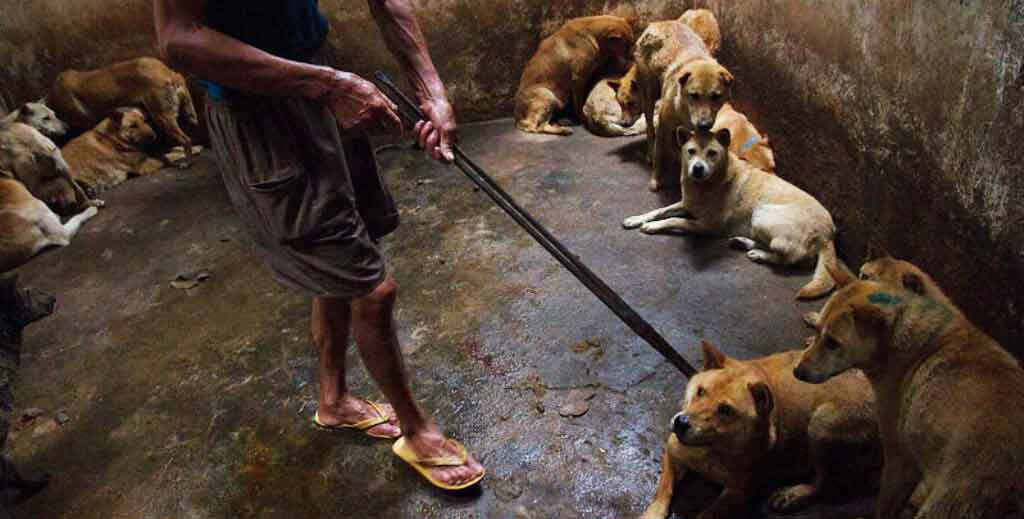
Many dogs in the kennel still had their collars on, proof that until recently they were loved by their families and showing how common the practice of stealing them was.
Our investigators also saw puppies—just a few weeks old—crammed into tiny cages, waiting to be sold to another kennel specialized in “fattening up” these animals.
When these puppies reach the desired weight, they will be killed directly on the farm without any form of stunning, bypassing the slaughterhouse.
The investigators risked their lives to collect these images, but it was worth it because, with their work, we achieved a completely unexpected result…
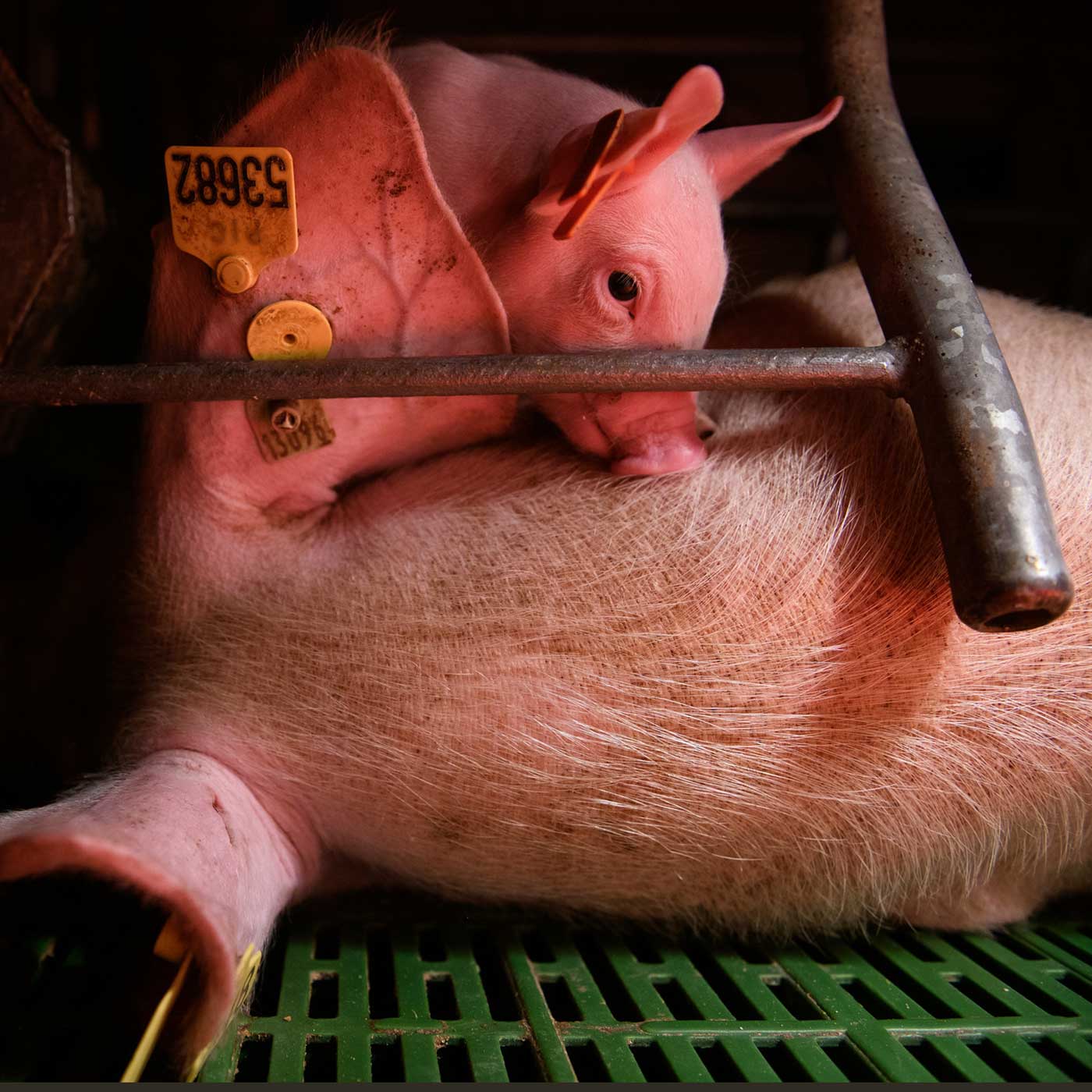
Give the gift of compassion
This season is about giving the gift of compassion—multiplied! For a limited time, a generous supporter will match your donation to Animal Equality, multiplying your impact on ending animal cruelty. Together, we can create a kinder world for animals.
First victory: A slaughterhouse and 33 cat and dog meat dealers closed:
In October 2013, news came of a great victory that we will remember forever.
33 cat and dog meat retailers in the “The Three Birds” market in Dali and a dog slaughterhouse were closed by Chinese authorities following our investigation, which was conducted with Chinese activists from the Guangzhou Volunteer Center and other animal protection organizations.
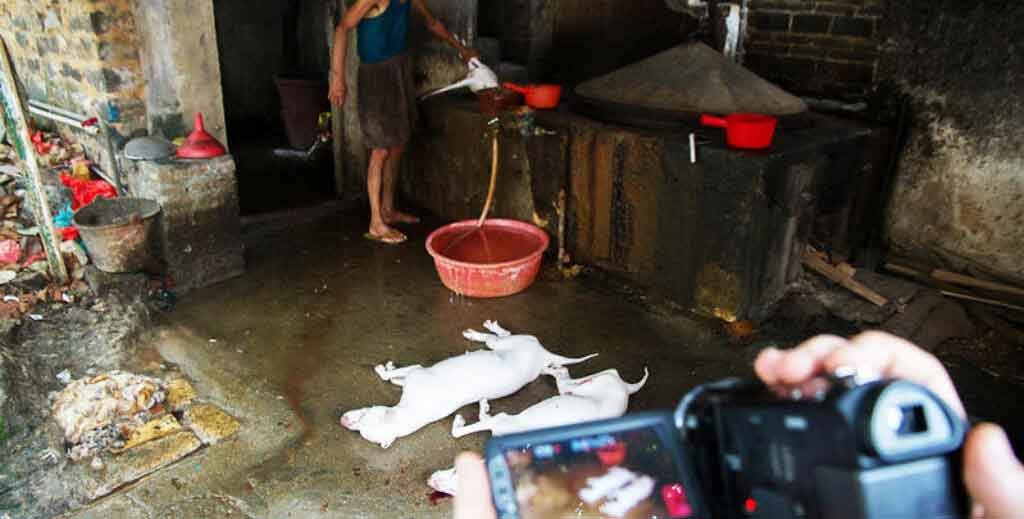
The footage obtained by our investigators was used by the authorities to denounce the illegal trade, the violations of biosecurity regulations, and the lack of vaccines and certificates of origin for the dogs (since most of these animals came from the street or are stolen from their families by traffickers).
During the raid, the police seized more than 600 dogs and cats in poor condition—all of which were immediately secured by local groups.
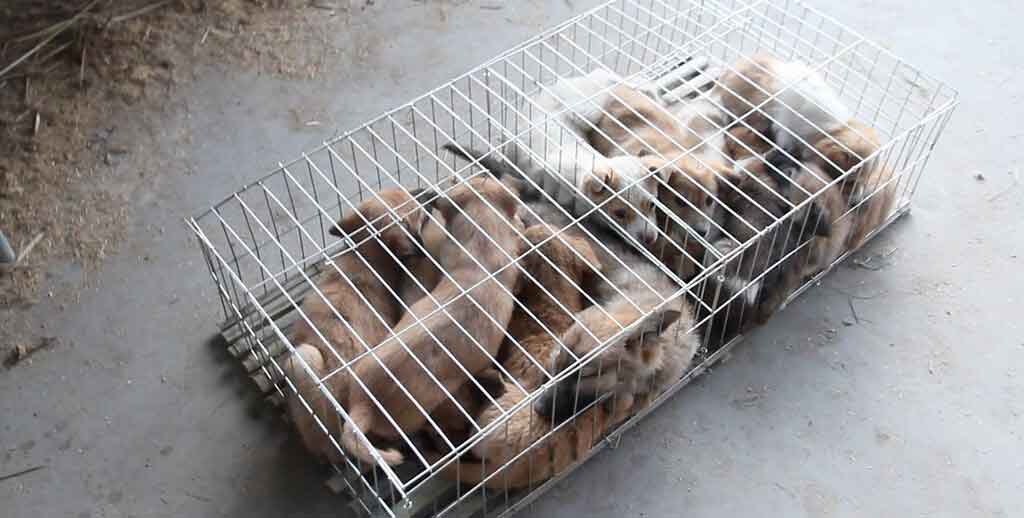
The Nanhai authorities also closed a slaughterhouse located near the market that was used by traders to supply local restaurants. During the police intervention, more than one hundred dogs were found in cages, many of them injured and dehydrated, while others were unfortunately already dead.
Footage of the closure of the cat and dog retailers and slaughterhouse was broadcast around the world, reaching the homes of millions of people.
Dogs and cats skinned to become bags, toys, and clothing:
In October 2013, Animal Equality investigators infiltrated two other slaughterhouses in the Shandong region, documenting the killing and skinning of dogs—a death accompanied by excruciating pain and suffering.
Dogs and cats used for merchandise are stunned with violent blows to the head, after which their throats are cut. Many regain consciousness only to bleed to death, agonizing for many minutes.
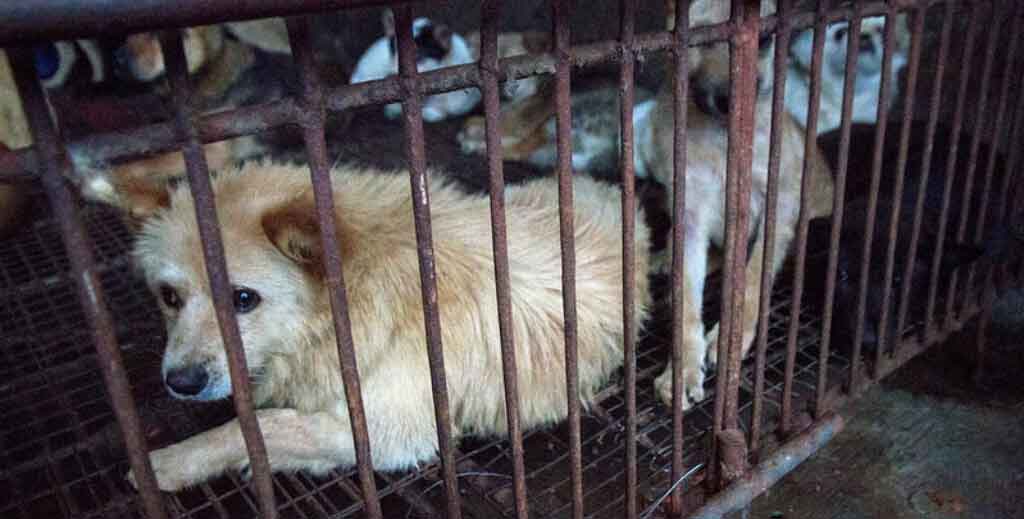
In addition to cat and dog meat, their fur and skin is also coveted by some in China, and are used to produce bags, clothing, and even toys.
In a market in Guangzhou, Canton Province, shopkeepers sold carpets made from cat and dog fur for a few yen. In a store in Beijing, our investigators found children’s clothing and toys in the shape of cat and dog… made from their furs.
These products, often deliberately labeled as ‘rabbit fur,’ easily cross international borders and are sold in stores around the world.
New footage of the trade of dog and cat meat in 2020:
In response to the spread of COVID-19 and the controversy over wet markets, the Chinese government removed dogs from the list of animals considered ‘farm animals’ but never explicitly banned the trade and consumption of cat and dog meat.
For this reason, after ambiguous statements from the Chinese Government, our investigators returned to China in the spring of 2020 to collect new videos that show the trade of these animals never actually stopped.
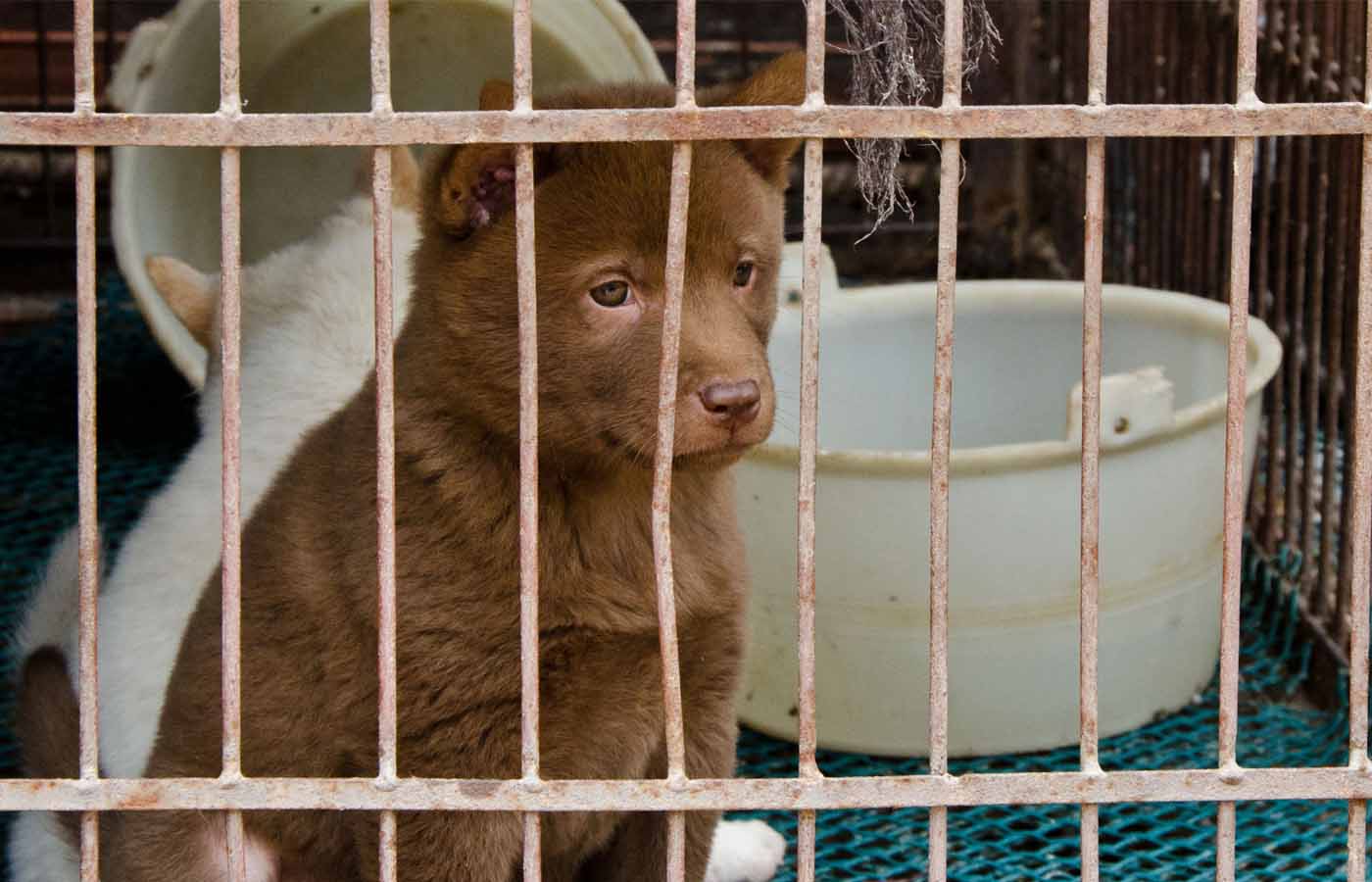
CHERISH COMPANIONSHIP
As loyal companions, dogs and cats have been beloved by humans for thousands of years.
Defend these ancient bonds by replacing animal products with plant‑based ones.

